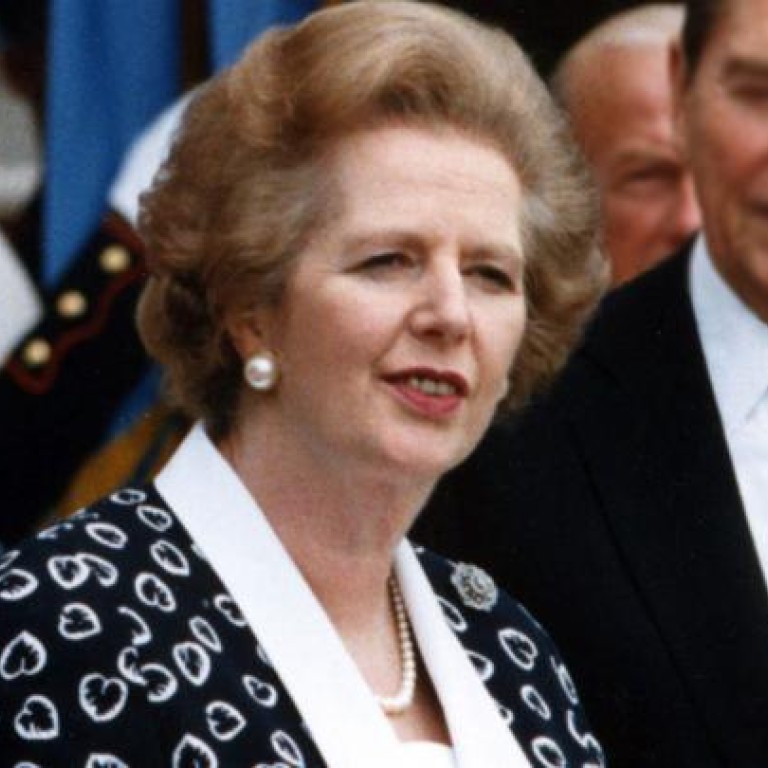
Thatcher's none-too-splendid legacy
Kevin Rafferty says her strength as a leader could not compensate for the weakness of her policies
Baroness Thatcher was finally laid to rest this week. In her declining years, she was a sadly rusted version of her "Iron Lady" image, a reminder of the wisdom of the eminent neurologist Oliver Sacks, who said, "I don't know whether there are any good ways to die".
She was undoubtedly a great leader, who gave the world "Thatcherism". To her credit, though Thatcher was prepared to flutter her eyelashes when it suited, she climbed to the top of what Benjamin Disraeli called the "greasy pole" of politics not as a token woman but by force of will and leadership.
If necessary, she dealt ruthlessly with opponents. Being handbagged by Thatcher was the end of many a promising career.
This goes to the heart of the problem of Thatcher in particular and of strong leaders in general. She could not stand sycophants, but by her determination to get her own way, she reduced her colleagues in government to nonentities.
A famous scene from the satirical British television series showed a Thatcher puppet surrounded by her cabinet colleagues in a restaurant. "What will you have, Madame?" the waiter asked. "A large steak, extremely rare," she replied. "And the vegetables?" the waiter asked. "They'll all have the same," said Thatcher.
It was sad to watch the simpering procession of former cabinet ministers praising Thatcher on the BBC. Yes, she had good ideas, and was ahead of her time in imagining a great European democracy stretching from the Atlantic to the Urals. She raised legitimate doubts about the way the European Union worked, but she lacked someone at her elbow to whisper firmly that there were better ways of achieving her wishes to more lasting effect.
At the end of her term in office, she epitomised Lord Acton's dictum that absolute power corrupts absolutely.
Thatcher fought and won bitter wars. She raised the spirits of Britain with her victory in the Falklands war and echoed the feelings of the British common man in defying the "eurocracy". She turned British industrial relations upside down with her humiliation of the miners and curbing of trade union power.
But it is stretching things to claim, as some commentators did, that she turned the tide of history. In the two key areas of economics and Britain's place in the world, Thatcher's legacy is dangerously baneful.
See the hard facts of Britain today: its economy is still in decline. In the past five years, the pound has fallen by 20 per cent, but the country has not been able to take advantage of such a substantial devaluation by boosting exports. The trade deficit in goods reached 6.9 per cent of gross domestic product in 2012, the highest since 1948.
Britain does not have the manufacturing strength to turn out modern goods to supply the world. Even though it is 23 years since Thatcher left office, one reason for this weakness is the consequences of her policies in smashing the trade unions.
It is ironic, because Thatcher's friends were the old-style industrial bosses. Yet the main beneficiaries of her privatisation policies were the newly emerging investment bankers of the City of London, who made billions in fees from the privatisations, plus as much again in trading gains as they became the new overpaid rentier class.
Thatcher said that her upbringing living above her father's grocer's shop helped her to understand how society worked. "There is no better course for understanding free-market economics than life in a corner shop," she claimed. This simplistic view of economics, based on the need to balance the family chequebook, backed by old-fashioned ideas of hard work and thrift, does not take account of the complexities of the modern state.
As Will Hutton, principal of Hertford College, Oxford, has written, "She never understood that a complex ecosystem of public and private institutions is needed to support risk-taking, the creation of open innovation networks, sustained long-term investment and sophisticated human capital."
Thatcher was dazzled by the magic of markets that led to the disastrous rise of the greedy financial rentiers. So strong was her legacy that no one has dared challenge her, with David Cameron saying like the worst sycophant, "We are all Thatcherites now".
Her foreign policy legacy has impoverished Britain. In spite of her dream of a great European democracy, she stood in the way of the admittedly difficult task of achieving it. She opposed the unification of Germany, declaring that, "We beat the Germans twice and now they are back". She described the political EU as "perhaps the greatest folly of the modern era".
Thatcherite Britain relishes its splendid isolation, not understanding that its imagined ally the US, as former US State Department policy planning chief Anne-Marie Slaughter, put it "needs not Britain but Europe".
As for being the greatest 20th century leader, Deng Xiaoping is empires ahead, as he proved when negotiating with her over Hong Kong.

